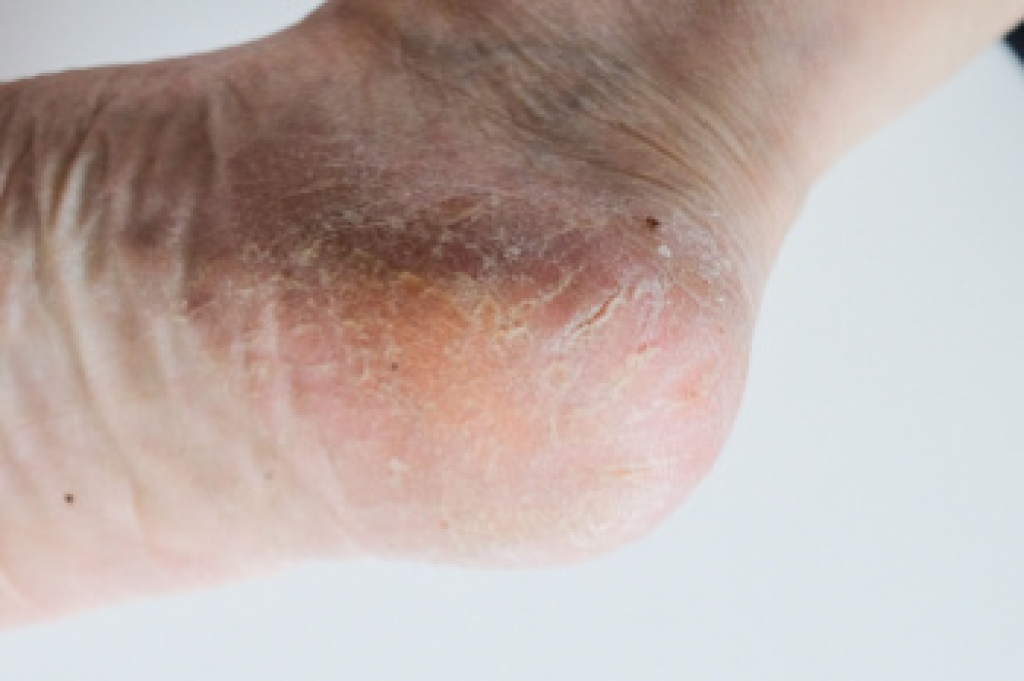
Cracked heels are a common foot condition where the skin on the heels becomes dry, thickened, and fissured. This problem can arise from several factors such as prolonged standing, wearing open-back shoes, and inadequate foot care. Symptoms typically include pain, dryness, and visible cracks or splits in the heel skin. People with certain conditions like diabetes or obesity, which exacerbate pressure on the feet, are more prone to developing cracked heels. Additionally, those who live in dry climates or have a tendency towards poor hydration may also experience this issue. If you have cracked heels, it is suggested that you consult a chiropodist who can effectively treat this condition.
Cracked heels, also known as heel fissures, can cause pain and discomfort. If your cracked heels are bothering you, please consult with one of the specialists from Thornhill Foot Clinic. Our chiropodists will assess your condition and provide you with quality foot and ankle treatment.
Dry, thickened skin around the rim of the heel is typically the first sign of cracked heels. While this condition is common and usually just a nuisance, some cases can be more severe. If left untreated and as more pressure is placed on the heel, the cracks become deeper and eventually walking and standing can be painful. These deep cracks or fissures can bleed and also become infected. Those with diabetes need to be especially careful as fissures could lead to diabetic foot ulcers.
Causes
Cracked heels can be the result of several different factors, including:
- Dry skin
- Taking long, hot showers or using harsh soaps
- Standing for long periods of time
- Walking barefoot
- Walking in shoes with an open back, such as sandals or flip flops
- Wearing shoes that do not fit properly
- Living in a cold or dry climate
- Certain skin conditions, such as eczema or psoriasis
Treatment
There are many at-home treatment remedies for cracked heels. Applying moisturizers to the heel can help hydrate the skin. Soaking your feet in warm water and exfoliating them with a loofah or pumice stone can help to buff away dead skin cells. If you are afflicted with cracked heels, it is recommended that you see a chiropodist for treatment.
Prevention
You can prevent cracked heels by:
- Avoiding standing in one position for prolonged periods of time
- Wearing well-fitted shoes with a closed back
- Washing your feet with gentle soaps and lukewarm water
- Moisturizing the feet daily
If you have any questions, please feel free to contact our office located in . We offer the newest diagnostic and treatment technologies for all your foot care needs.
